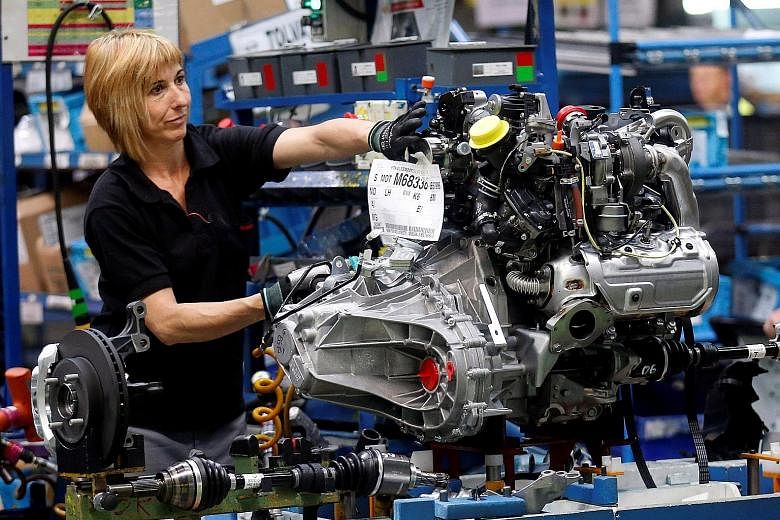TAIPEI • The chip shortage crisis is a historic test for the century-old auto industry just as it is trying to accelerate a shift towards smarter, electric vehicles.
For decades, carmakers moved steadily to include more and better advanced features; now, they are stripping some of them out - at least temporarily - to salvage their sales.
Nissan is leaving navigation systems out of thousands of vehicles that typically would have them because of the shortages. Renault has stopped offering an oversized digital screen behind the steering wheel on its Arkana sport utility vehicle - also to save on chips.
The rollback underscores the depth of the issues facing the industry. Just last week, BMW, Honda Motor and Ford Motor all flagged worsening problems from chip shortages. A failure to secure critical supplies is a massive short-term setback - millions of vehicle sales will be lost this year - and bodes ill for the future as competition from tech-savvy Internet and consumer-electronics companies intensifies.
"This probably gets worse before it gets better," said Mr Stacy Rasgon, who covers the semiconductor industry for Sanford C. Bernstein. "It just takes a long time to bring this capacity online."
NXP Semiconductor chief executive Kurt Sievers said the shift to electric vehicles is happening faster than anticipated, which has added to the increased demand for automotive chips. NXP plans to ship at least 20 per cent more auto chips by revenue in the first half of this year compared with the first half of 2019, even though car production has dropped about 10 per cent over the period, he said.
Mr Mark Liu, chairman of Taiwan Semiconductor Manufacturing Co, cautioned that the crisis is far from over. His firm, which is the world's most advanced chipmaker and will be critical to any resolution, will begin to meet auto clients' minimum requirements by next month, but expects that the car-chip shortages could last until early next year, he said in an interview with CBS.
Automakers cannot just wait. One reaction to the shortage is to allocate the scarce components to more profitable and better-selling vehicles at the expense of other models - something manufacturers like France's Renault and Japan's Nissan Motor are doing.
Carmakers are also building vehicles with less technology. Peugeot is going back to old-fashioned analog speedometers for its 308 hatchbacks, rather than using digital versions that need hard-to-find chips.
General Motors said it built some Chevrolet Silverado pickup trucks without a certain fuel-economy module, costing drivers about 1.6km per gallon.
The car industry's predicament dates back to poor planning during the pandemic and limited chipmaking capacity, but it has been compounded by shrinking available cargo space as the global economy recovers from Covid-19. When automakers can secure orders, their chips often cannot be shipped.
"This has the potential to be a longer-term issue," said Ms Anna-Marie Baisden, an automotive analyst at Fitch Solutions. "This will only be exacerbated as vehicles become technologically advanced and use more chips."
BLOOMBERG

